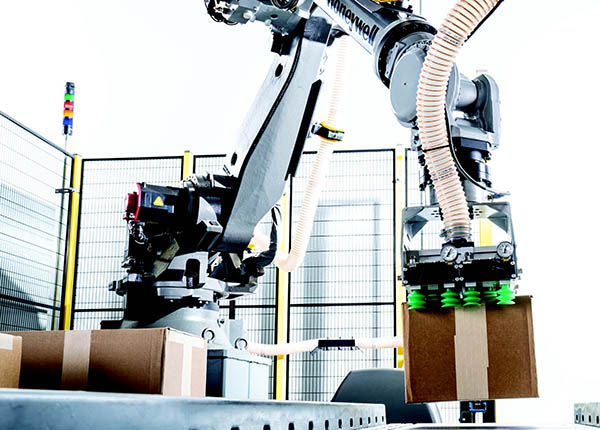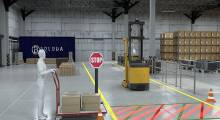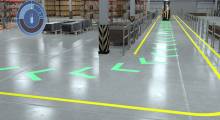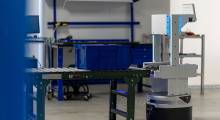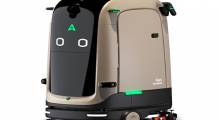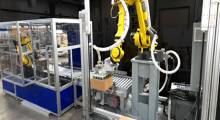How can automation help supply chains cope with uncertainty and shifting demand? Honeywell International Inc. today released a whitepaper exploring how the COVID-19 pandemic, global trade challenges, and regional conflicts have created long-term disruptions to the historically predictable throughput and capacity of warehouses and distribution centers.
The report, “Warehouse Automation: Future-Proofing the Global Economy” report, which was written by Futurum Research, examined automation as an increasingly critical component in helping warehouse and distribution center (DC) operators meet escalating consumer demands.
““One of the biggest predictors of how a business will thrive in the hypercompetitive e-commerce and omnichannel marketplace is how well it improves its decision making in real time to make deliveries faster and more accurate,” said Keith Fisher, president of Honeywell Intelligrated. “With rising service-level agreements dictating order-fulfillment process improvements, automation can help bring stability [and] predictability and potentially unlock greater efficiency to their operations.”
Any day can be a holiday, finds Futurum
Futurum Research's analysts developed the report after speaking with a group of industry leaders with global experience in warehouse operations, automation technologies, and systems implementation to learn their thoughts on the future of warehouse automation.
The report said that once-predictable consumer demand cycles centered around holidays and “peak seasons” have given way to a model where any month, week, or day can be a holiday.
“While warehouses have historically had a sense of predictability in demand cycles, we found that in today’s warehouses and DCs, every day is as busy as peak,” said Shelly Kramer, principal analyst and founding partner of Futurum Research.
“While we can assume the level of strain this has placed on supply chain and fulfillment operations, we were able to get a better grasp of how they are approaching this shift in consumer expectations and adopting the right automation to meet their long-term business goals,” she added.
Growing labor shortages, shifting priorities, and expedited growth and demand are affecting fulfillment operations, said the whitepaper. As a result, organizations are shifting their business models to take advantage of advanced technologies such as robotics.
However, warehouse and DC operators should look at these implementations as long-term solutions ingrained in the future of their business, noted the report.
Report offers recommendations
To future-proof automation deployments, robotics users should use “fast-fail” proofs of concept (POCs), integrate management systems to avoid silos, and take advantage of integrator experience, said Futurum and Honeywell.
The companies also recommended that warehouse and DC operators focus on augmenting rather than replacing workers, challenge their assumptions and technologies, and reassess expectations to invest for long-term return on investment (ROI).
“It’s not about replacing the workforce; it’s about unlocking its full potential,” said Fisher. “The role of automation in the warehouse is to aid existing workers, reducing their time spent on highly redundant and repetitive tasks so that they can focus on higher-level operations. When executed correctly, these tools can go a long way in helping to ensure long-term business success.”
About Honeywell
Charlotte, N.C.-based Honeywell delivers aerospace products and services, control technologies for buildings and industry, and performance materials globally. Its Honeywell Safety and Productivity Solutions (SPS) unit provides automation, mobile devices, sensors, personal protective equipment, switches, and cloud technology to improve productivity, workplace safety, and asset performance.
Honeywell said its technologies can connect workers to help the aerospace, construction, manufacturing, and supply chain industries be smarter and more sustainable.
In addition, the company said it offers warehouse automation, voice-guided software, and analytics systems to help keep workers safe and enable facilities to operate efficiently with a limited workforce.
Article topics
Email Sign Up

